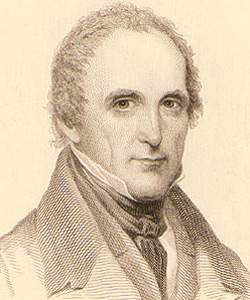Richard Rush (American National Biography)
Scholarship
In October 1849, recalled from office by the new Whig administration, Rush entered his final retirement. He became deeply concerned over the rising threat to the Union, placing the blame primarily on antislavery agitators, and in 1856 voted for James Buchanan…
Rush can best be described as an able lieutenant rather than a creative statesman. Aside from his vice presidential candidacy in 1828, he never ran for public office. However, he was not unwilling to take on responsibility, as was shown during his discussions with Canning in 1823 and by his unauthorized recognition of the French republic in 1848. In all of the offices he held, Rush proved diligent, capable, judicious, and, when necessary, firm. He rarely engaged in open controversy, one notable exception being in 1825 when he and the always quarrelsome John Randolph engaged in a fiery public argument following Randolph's statement that Rush's appointment to the Treasury was the worst since Caligula made his horse a consul. Never, while serving as a diplomat, did he show a loss of temper. Tall, lean, and almost bald since his youth, Rush presented a physical appearance appropriate to his manner, and his personality--friendly, even tempered, usually grave but sometimes gently witty--also suited his role.
Rush can best be described as an able lieutenant rather than a creative statesman. Aside from his vice presidential candidacy in 1828, he never ran for public office. However, he was not unwilling to take on responsibility, as was shown during his discussions with Canning in 1823 and by his unauthorized recognition of the French republic in 1848. In all of the offices he held, Rush proved diligent, capable, judicious, and, when necessary, firm. He rarely engaged in open controversy, one notable exception being in 1825 when he and the always quarrelsome John Randolph engaged in a fiery public argument following Randolph's statement that Rush's appointment to the Treasury was the worst since Caligula made his horse a consul. Never, while serving as a diplomat, did he show a loss of temper. Tall, lean, and almost bald since his youth, Rush presented a physical appearance appropriate to his manner, and his personality--friendly, even tempered, usually grave but sometimes gently witty--also suited his role.
Bradford Perkins, "Rush, Richard," American National Biography Online, February 2000, http://www.anb.org/articles/03/03-00434.html.


